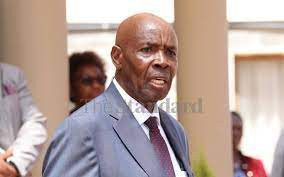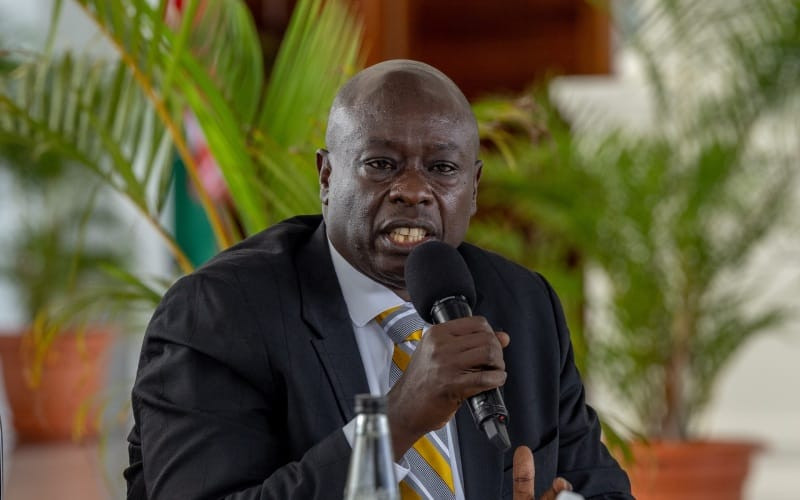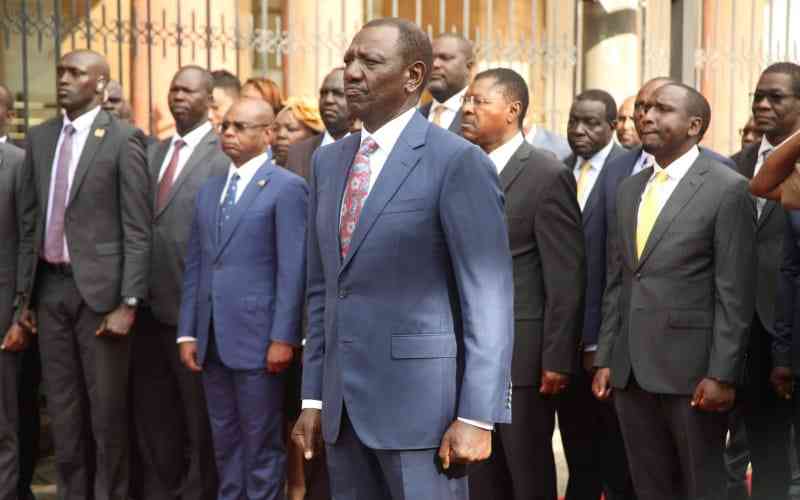By Barrack Muluka
Our people say that when you have no fire of your own, you can find comfort at a neighbour’s fireside. Better still, you are encouraged to borrow a little fire, like the legendary Prometheus of Greece. You use it to make a large fire of your own.
You are good for nothing with a cold fireplace. You will be despised, in Emanyulia. For even in the worst of circumstances, someone will tell you, “N’omwoora.” This is to say that although you can see smoke and fire around here, we really are not cooking anything. We have nothing to cook. Our fire is only for warming ourselves.
That is why I have no problem with Kenyans and Africans finding comfort at the American fireside, in the wake of the repeat of the Obama magic. Even the most jaundiced Republicans must give it to Obama. They must give it to his campaign team and to the Democratic Party. As they would say out there in Chattanooga, “These guys are one helluva team.” They hit the Republicans squarely in the middle of the eyes. Celebration is in order.
However, as happened in 2008, I say it again, Obama is the President of the United States of America. I have seen that we are quick to claim affinity and kinship. We are even throwing celebration parties. I doubt the wisdom resident in such celebrations, especially when they should involve higher society.
If you are familiar with Miss Theresa D’Urberville, otherwise known as Tess of the D’Urbervilles, in Thomas Hardy’s eponymous novel, you appreciate the folly of going overboard in search for affinity and kinship with the well to do. Poor Tessie is sent by her feckless parents to claim kinship with some rich country folks. She is rewarded with a pregnancy that becomes the curse of her life.
Our people say, “Ukiona vyaelea, viaundwa, unda vyako.” This is to say that good things don’t just sprout out of the soil. They are made to happen. Make yours.
Good democracy is made to happen. Good democracy? Is there bad democracy, then? Yes. There is emerging such a notion as bad and even dangerous democracy. Kenya is increasingly being featured in narratives of this dangerous democracy. In 2009, Paul Collier published the volume Wars, Guns and Votes: Democracy in Dangerous Places. We are prominently featured in these narratives.
Our political mobilisation is at once wrong and dangerous. It is wrong because we mobilise for the wrong reasons. The outcomes are the dangerous fires that have put the whole place in a mess, from Bujumbura to Dakar and from Harare to Nairobi. Put simply, we mobilise around greed.
It is pure and unbridled greed. There have emerged competing tribal elite cadres that greedily compete for control of the State and State resources to feed selfish ends. In the ensuing posturing, the various ethnic caucuses have found that it works well to sell the illusion that they are fighting for the tribe.
The result is mutual ethnic suspicion and hate. It is the perfect curtain raiser to Africa’s unending infernos.
Amy Chua is spot on in the volume World on Fire, “There is always an inherent tension between market capitalism and democracy. In societies with a market dominant minority, this tension is inflamed by the dark energies of ethnic hatred. As a result, throughout the non-Western world today, markets and democracy – at least in the raw forms in which they are currently being implemented – are not typically mutually reinforcing. On the contrary, their combined pursuit in the face of a hated market dominant minority is a recipe for ethnic conflagration.”
We need not emphasise that a “dominant ethnic minority” is not necessarily a numerically small tribe, like the Tutsi in Rwanda and Burundi (who make up just about 14 per cent of the population, while the Hutu make up 85 per cent and the Batwa one per cent). It can be a populous tribe, which, however, is a minority when viewed against the rest of the population. What you are witness to in the Kenyan case, therefore, is the example of each one of the Kikuyu, Luo, Luhya, Kalenjin and Akamba tribal elite trying to mobilise for dominance and control.
The tribal political elite in these five communities views other Kenyans as “small tribes.” You are; however, welcome to work with them as their client. Even when a member of one of these dominant tribes crosses over to support a leader from another tribe, he or she is viewed as a client and an outsider “who has come to help us to get into power.” You can never belong, or believe in the same things.
Ultimately, the tribal caucus is seeking to dominate and control public finance, public procurement and public audit. The best way to do this is first to grab political power. Next is to fill up all strategic positions in the tripartite of finance, procurement and audit with homeboys across the public service. Finally, you place the intelligence, police and armed instruments of the State firmly in your control. Now you are ready for what is called, “It is our turn to eat.”
Stay informed. Subscribe to our newsletter
To the extent that this remains the essence of our political aspirations and mobilisation, we are not yet ready for democratic and peaceful elections such as we have just seen the Americans go through. We can only celebrate other people’s peaceful elections and claim affinity. Until we are able to vary our sense of those we regard to be “our people” our experiments with Western democracy remain one of the foremost threats to peace. It goes back, again, to the educated cadres in our midst and to our ethical and moral pillars.
The educated middle class, the academy and the shrine must provide leadership in detribalising politics and elections in Africa. Unfortunately, they all worship the tribal leader and are a liability to him and to the country. The mass media, too, have performed dismally. We preponderate with a juvenile media fraternity that seems to enjoy watching and fanning dangerous and useless ethnic competitions.
The writer is a publishing editor and advisor on public and media relations
 The Standard Group Plc is a
multi-media organization with investments in media platforms spanning newspaper
print operations, television, radio broadcasting, digital and online services. The
Standard Group is recognized as a leading multi-media house in Kenya with a key
influence in matters of national and international interest.
The Standard Group Plc is a
multi-media organization with investments in media platforms spanning newspaper
print operations, television, radio broadcasting, digital and online services. The
Standard Group is recognized as a leading multi-media house in Kenya with a key
influence in matters of national and international interest.
 The Standard Group Plc is a
multi-media organization with investments in media platforms spanning newspaper
print operations, television, radio broadcasting, digital and online services. The
Standard Group is recognized as a leading multi-media house in Kenya with a key
influence in matters of national and international interest.
The Standard Group Plc is a
multi-media organization with investments in media platforms spanning newspaper
print operations, television, radio broadcasting, digital and online services. The
Standard Group is recognized as a leading multi-media house in Kenya with a key
influence in matters of national and international interest.









